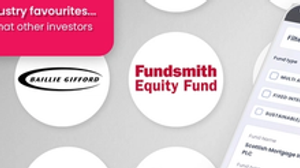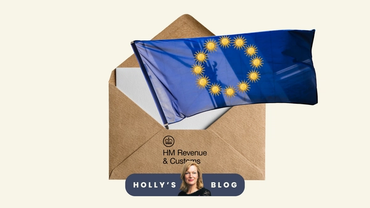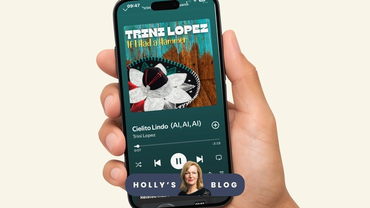Holly's Blog: When is cheese more important than museums?
21 Jan, 2022
My friends, I am in pain this week. Not just because of 5% inflation and my heating bills, but I had a short stint with a personal trainer on Wednesday, in search of muscles not seen since 1805. Today I am hobbling around like a cowboy. I would humbly like to offer my gluteus maximus as evidence to Sue Gray that you can be somewhere for 25 minutes and it really does count.
Right. Money stuff. Inflation went up to 5.4% in December. We’ve all observed that fuel costs more. Heating bills are up. Crisps are up by 9%, no less. A packet of polos I bought yesterday was 99p. (I’m sure I remember once buying a packet for 10p, but that feels horribly ageing to admit.) In a rare silver lining, trendies will find solace in the fact that the price of avocados has fallen. Phew.
The economic time capsule
Beware of diving into the depths of what makes up the Consumer Price Index. It’s a veritable Black Hole. A massive basket of products is given proportionate weighting and reads like an economic time capsule. If the whole basket is 1,000 points, pizza and quiche contribute 0.9 points. Footwear for women is 5.2 and footwear for men is 3.2 (I think the boffins got that split a tad wrong!?) and camper vans are 7.98 which feels quite bizarre to me. Cheese and curd are 2.52 and museums are a lowly 2.09. What has the world come to when Cheddar is more important than the National Portrait Gallery?
Former darlings fall from grace
As markets pivot and adapt to the gradual re-opening of the world and slow emergence of pre-Covid consumer patterns, shares in the lockdown-tastic Netflix and Peloton have fallen. At-home cycling phenomenon Peloton’s market value has fallen from $50 billion to nearer $8 billion in the past 12 months. Other lockdown darling Ocado is down 43% over the last year.
With continued volatility, picking individual shares feels very hard, and dare I say, random work. We ran a webinar for beginner investors earlier this month (you can watch on catch-up) and had quite a lot of questions about ETFs.
Meet the ETFs
Although it’s another dreaded acronym (ETF stands for Exchange Traded Fund), I think these things are an investor’s friend.
For those who don’t know, here’s how they work. Imagine I set up the Holly ETF. For the UK, using the FTSE 100. I could take £100,000 and buy the 100 biggest shares in the UK, proportionate to their size. I’d spend £7,200 on AstraZeneca shares. £4,150 on HSBC. £540 on Next. And so on. I would then open up the Holly investment shop. You could invest just £100 in my ETF. So it’s one purchase for you. But making up that £100 are all the companies in the FTSE 100. But you don’t need to faff or fiddle or worry about AstraZeneca or Next or the other 98 components.
In reality, I don’t have a shop. But you can buy ETFs in your online ISA or pension. And you buy them like any old share. You will typically pay about £10 in fees to make a trade so it’s not really worth doing with a few £100 to invest as the trading costs will put you firmly in the red. If you have £1,000 or more, it starts to make more sense.
ETFs come in all shapes and sizes – different regions, sectors, low-carbon ones, socially responsible ones, biotech, crypto – you can read more in our Guide. Some providers of these include global whopper BlackRock (their iShares range) or check out Wisdom Tree for more niche and thematic plays. I have the iShares FTSE 100 ETF, an HSBC China ETF, an Invesco S&P 500 ESG ETF and a Vanguard Developed Europe excluding the UK ETF, amongst others. Cheap and simple ways to invest in a range of stuff without having to get into the nitty-gritty.
Right. Over and out for another week. If your New Year Resolutions included sorting out the dreaded pension, then you may want to book into our next webinar coming up on Tuesday 1 February 2022, which tackles all things investments and pensions for the over 40s. Aimed at less-confident investors, this webinar is supported by Aviva and I’ll be digging into your investment/pensions questions and translating some good tips into plain English with no associated gobbledygook.
Holly







